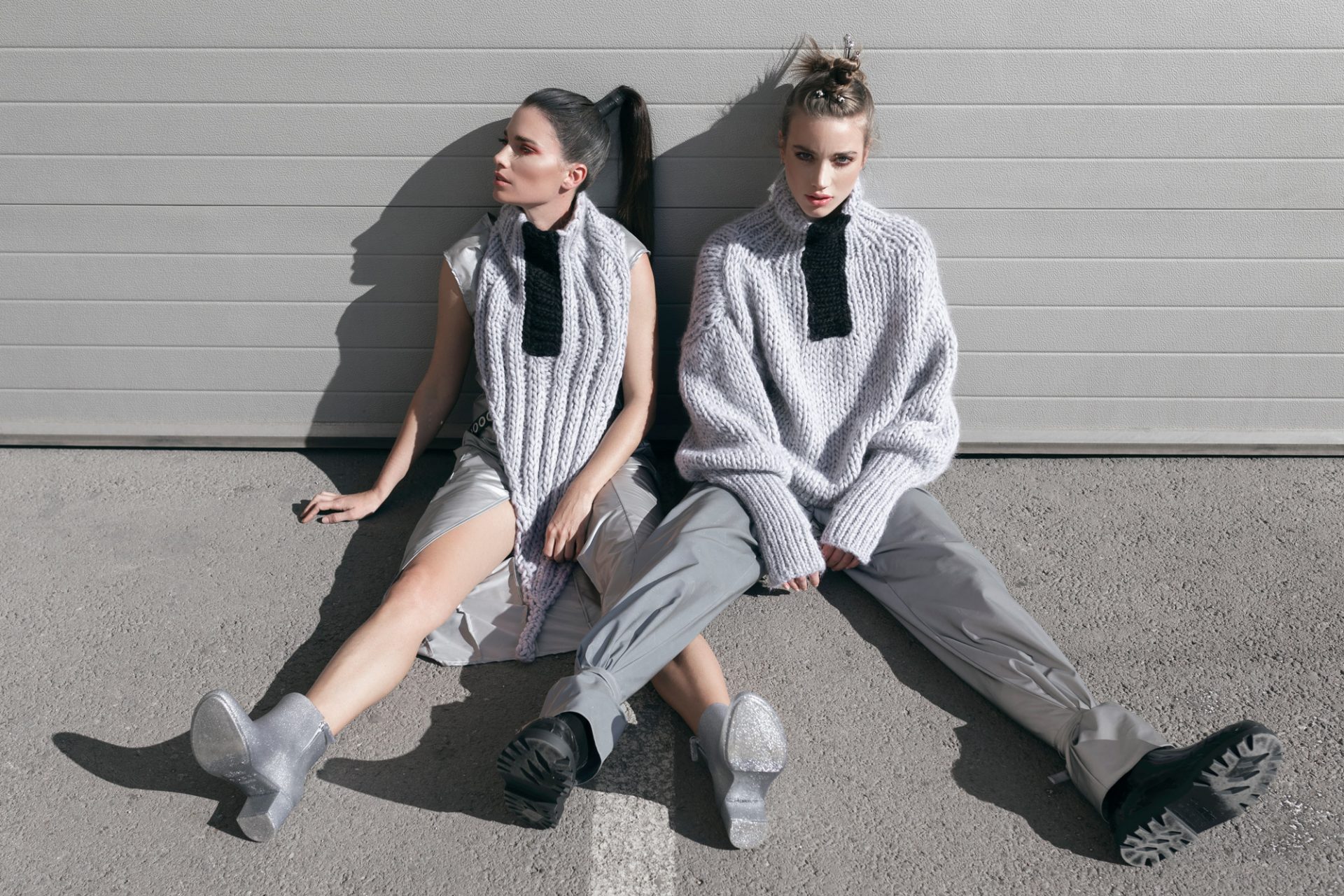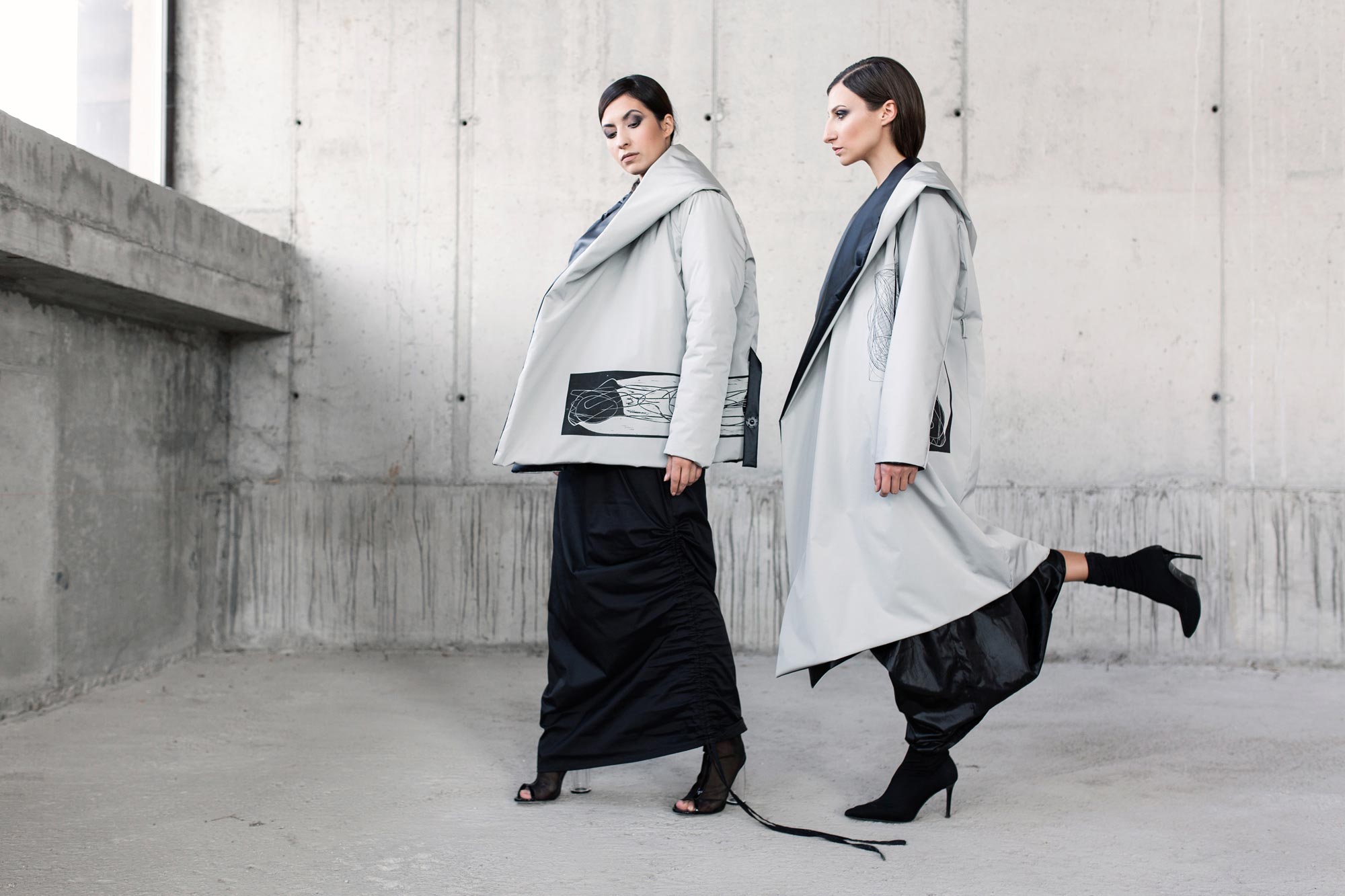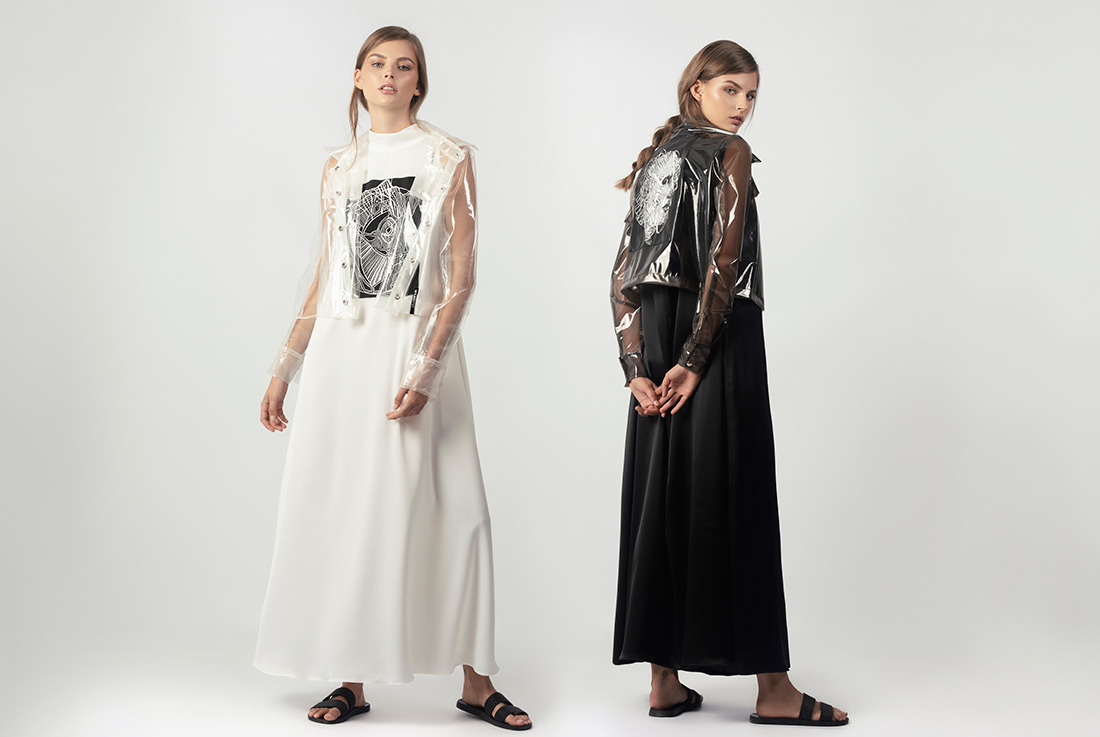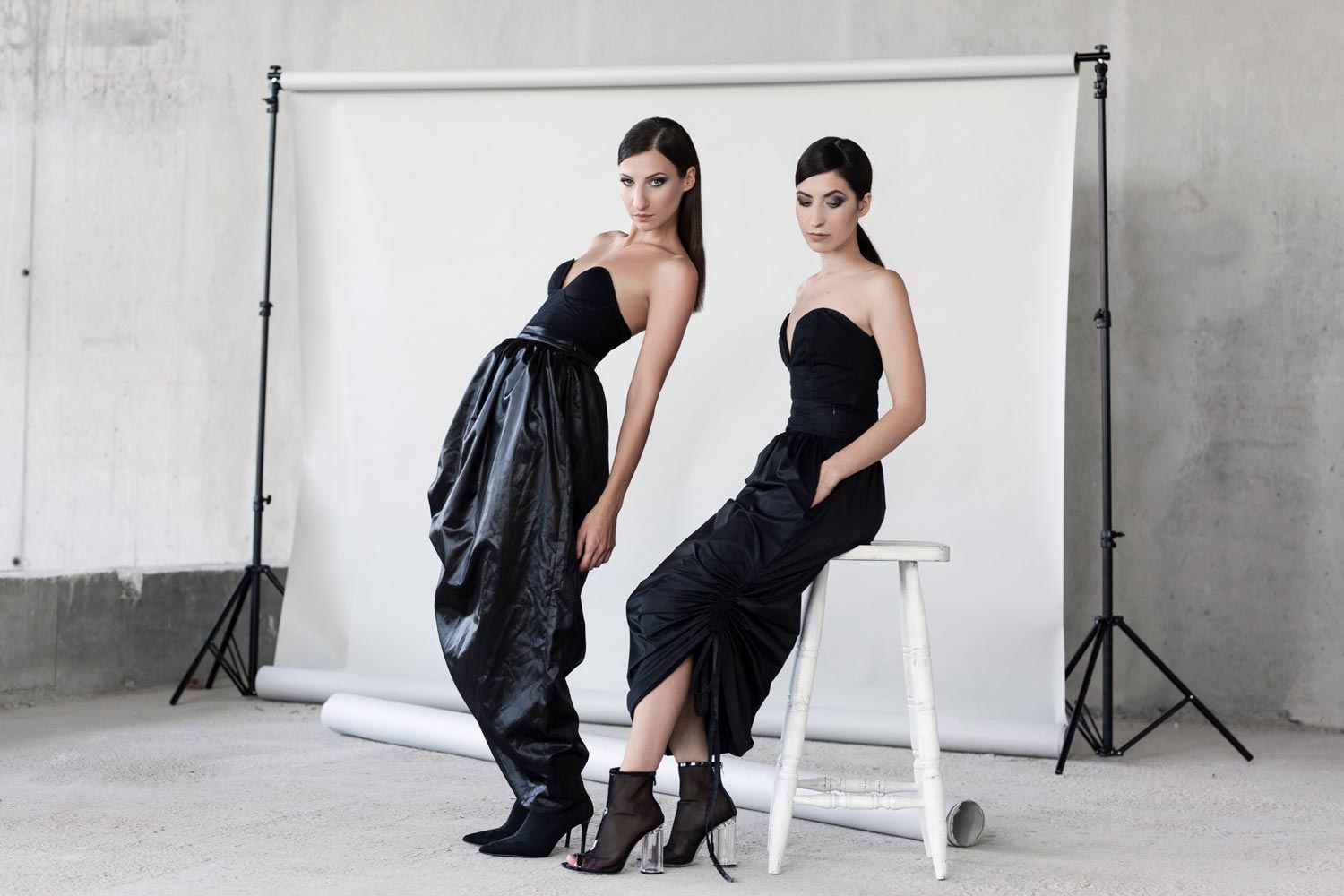
Work hard, believe in yourself, and don’t blame anyone else if you don’t succeed.
Bosnian native Ena Dujmović is pioneering the fusion of modern art and graphic design as a method to create the fashions that make up her brand Plusminus. Dujmović views her brand as an opportunity to innovate: “the inspiration came from the world of graphic design and its artists who frequently remain closed off to opportunities that break the traditional mold within which they operate, but who are now opening themselves up to a whole new vision.”
Dujmović, who studied Product Design at the Academy of Fine Arts in Sarajevo, recalls the moment when she first realized she wanted to pursue a career as a fashion designer. “I had the opportunity to work for one of the rare fashion houses in Sarajevo. This was a special experience because I was immediately ‘thrown into the fire’. I had to do a lot of things that weren’t in a designer’s job description, but all of this helped me to make my brand more serious later on.”

Dujmović’s experiences at the Art Academy and at the Sarajevo fashion house helped her to discover her own unique aesthetic and signature as a designer and motivated her to create her own fashion brand. When asked to describe the Plusminus brand, she emphasizes the concept of contrast that is present in all of her creations—black versus white, positive versus negative, plus versus minus. Each of her pieces, a work of contemporary art hand printed onto natural fabrics that tells the story of each artist in the form of graphic fashion.
The process behind the production of her designs is as intricate and innovative as the concept of the brand itself. The first step in her artistic process is to gather inspiration from the creativity she channels from within herself. “When I want to accomplish my own creations I feel like running off to somewhere without technology so that I can get in touch with myself and elicit my own creative energy.” This is followed by an initial concept sketch for each design. Once a concept comes to fruition, molds are created to transfer art onto fabric in unique, handcrafted ways.
“A large part of the process goes toward experimentation with graphic expression and the application of these expressions onto to textiles. We currently combine copper-etching and linocut techniques to create our designs and I’m always working with the artists to explore new ways of expressing their art form,” says Dujmović.

Dujmović discusses Bosnia’s fashion industry and how it was once booming just 25 years ago. Post-war, however, there are only a few notable companies left, and this presents a major disadvantage to the youth that are attempting to enter the industry. When asked of the hardships she faces working in this post-conflict and highly complex society, Dujmović says, “Sarajevo is not a very inspirational environment for designers, but when you are carrying the creativity inside of you, it finds a way to come out.”
Struggles and roadblocks are not unfamiliar to Dujmović and she has faced many challenges along her journey to create her own brand. “You can’t expect anyone to help you because there are very few people that will believe in your success. So, in many ways, you are on your own, and you often need to think carefully about your every move and what you will do next,” she states. However, despite the challenges and disadvantages that may come along with working in Bosnia, she explains that there are silver linings: “Because the fashion here is not developed, it was easy to reach customers and achieve goals very quickly.”
Dujmović’s self-reliant approach, creative energy, and dedication to her passion fuel her to continue pushing ahead in this industry. “When you look back, you know that your hard work wasn’t for nothing. So every day, I wake up, make plans for the day, and believe in myself and work.” She continues to promote and support Bosnia’s fashion industry and the designers that are a part of it. “I try to inspire myself on my journey and motivate as many creators as possible to take the same step. We are stronger together,” she expresses.
The advice she gives to young aspiring artists is: “Work hard, believe in yourself, and don’t blame anyone else if you don’t succeed.”

__________________________________________________________________________________
This article was initially published within the Bosnian edition of ASBO Magazine in 2019. ASBO Magazine is an independent publication created by the D Foundation as an extension of its mission to unearth and showcase fresh talent. The magazine aims to showcase the artistic talents and potential of Bosnians and Herzegovinians in an effort to empower and give them an international platform to share their work, ideas, and opinions on music, fashion, art, and cinematography.






